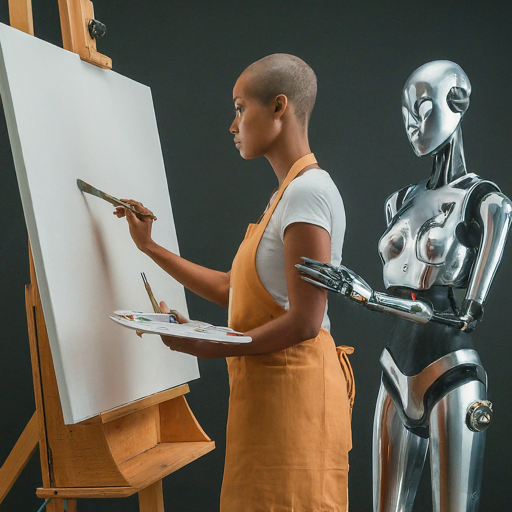
The future of art? / Generated by Bard AI
In the last year artificial intelligence has been and is growing exponentially. Every week, AI technology becomes more proficient in mimicking whatever it uses as its learning source.
The type of AI that has been created and is mostly being focused on at the moment is text bots that can mimic human writing and visual art; AI that takes prompts. Specifically, current AI is being built to mimic creative jobs. It is often repeated by supporters of AI that it is merely an instrument to be used by artists, that it will merely allow for artists to focus on the concept instead of the execution; making art greater rather than worse. This, however, misses a crucial point about art. Art is not merely a way to deliver concepts. Art is an expression of humanity, a reflection of whoever created it. When AI becomes the only tool through which art is being produced the product loses this – for lack of a better word – soul.
Recently, one of the other problems we have seen with AI in art is that it allows large companies to use computer generated writing and visual art to replace real artists working – in this instance – in the film industry. This was one of many issues brought up in the actors and writers guild strikes that have recently taken place, and was not totally resolved. Even if people still want to express themselves through art this may become increasingly difficult.
Today, becoming an artist is viewed as economically risky. If AI becomes a common device used to produce art for sale, artists will have to compete even more fiercely for fewer jobs.
Using AI can be hugely beneficial to the world if used in certain careful ways. Using AI to model possible automobiles, vaccines, surgeries, climate control tactics and thousands of other possibilities is not necessarily a bad thing. Complex models constructed by AI could do more than any single human would ever be capable of, but we have to be careful in exactly the ways we regulate and control this technology. Not only does AI threaten art and the artists that produce it, it threatens the progress of our culture as a whole. Because current AI is incapable of inventing its own opinions and rather takes whatever average is suggested by the results it pulls from the internet it is incapable of innovation. When art is – by its very nature – the average of human opinion we lose the opportunity to advance our societies through the radical ideas that art promotes.
